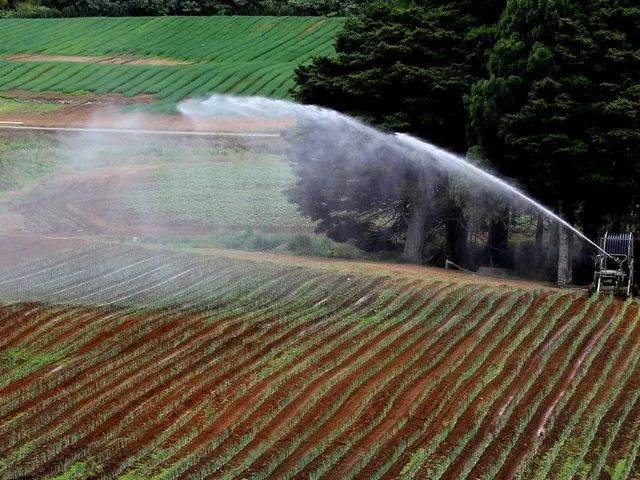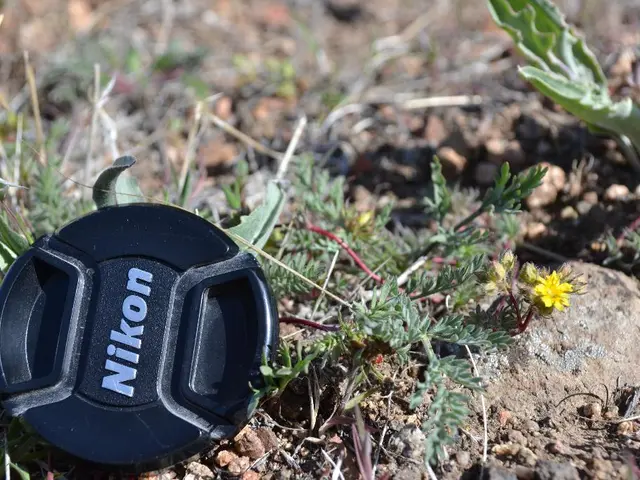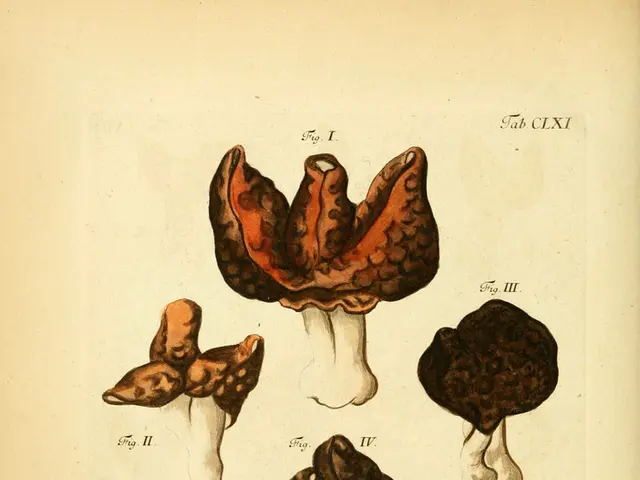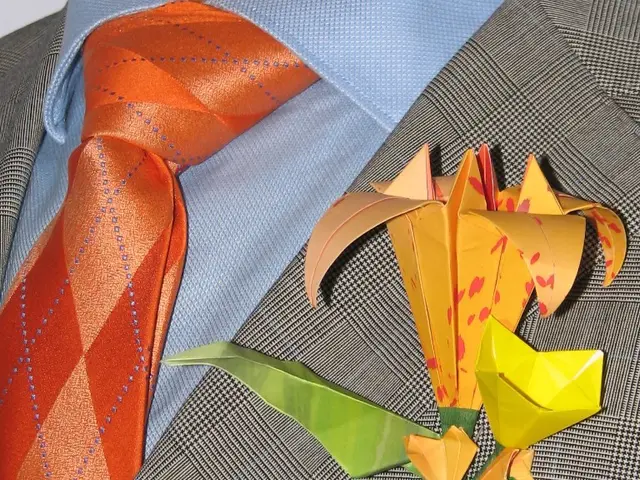Underground Feasting: An Insight into the Earthworm's Food Preferences
Got a curiosity about the diet of earthworms? Most people think earthworms are just beneficial for the soil, but did you know they actually have a diverse diet? Here's a lowdown on these soil-dwellers and what they love to chow down on.
Slurp It Up: What Earthworms Gobble Up
Overview:
Earthworms, much like us, have a variety of tastes. Their diet primarily consists of manure, decaying plant and animal matter, algae, and fungi. Some even enjoy soil with organic matter. In nature, they munch on everything from microorganisms and dead animals to leaves and grass.
The Down and Dirty: A Garden Lover's Guide
Ever wondered why there are so many earthworms in your garden? Well, one acre can contain up to one million of these little guys! There's a reason for that, my friend, they're hard at work processing soil and organic matter into plant nutrients.
Now you don't need to be a troubadour to compost with worms. If you're a garden enthusiast, here's an insider scoop on what these critters enjoy munching on:
- Fruit and vegetable scraps
- Hair and nail clippings (if you're into that)
- Moldy bread
- Eggshells (rich source of calcium for them)
- Some grains (in moderation)
- Coffee grounds
- Tea bags/ old tea leaves
- Shredded newspaper (but not the colored ink)
- Cardboard
- Cotton
- Cow and horse manure
For the epigeic worms who reside on the surface, you'll find them feasting on fallen leaves, wood debris, and decaying plants.
The Classifications: Different Kinds of Earthworms
Ever heard of epigeic, endogeic, and anecic worms? These are the main categories of earthworms, each with its unique likings and characteristics. They dwell in different soil layers and eat accordingly.
- Epigeic worms: These guys prefer living above the soil surface. They eat whatever they find on the surface, such as fallen leaves and dead plants. They're also known as compost worms.
- Endogeic worms: Translates to "within the earth." True to its name, these worms live in the top layers of soil and eat soil enriched with organic matter.
- Anecic worms: These are the travelers. Although they mainly live under the soil, they also come up to the surface for a bite. They love organic matter and will drag it down their burrow for a later meal.
Finding Your Wigglers: Identifying Earthworms
There are over ten types of earthworms you can find. Want to know how to identify them? Well, that's a whole other adventure! But, keep in mind that these wriggly fellas come in various shapes, sizes, and colors.
Soil Safari: What Earthworms Don't Eat
Living Plants: A No-No Zone
No need to worry about earthworms munching on your prized roses or luscious veggies. They exclusively eat decaying organic matter, not living plants. They just help nature break down dead plant matter, recycling nutrients back into the ecosystem.
The Feeding Frenzy: Should You Feed Earthworms in Your Garden?
If you're keen on welcoming more earthworms into your garden, the best way to feed them is by providing them with fallen leaves, twigs, and other organic plant matter. Some might even suggest shredding the bigger branches and using them as mulch around your plants, creating a win-win situation!
Vermicomposting: What to Feed Earthworms for the Ultimate Compost
If you're getting into vermicomposting, here's what your wriggly friends will eagerly munch on:
- Any vegetable or fruit peelings (excluding citrus)
- Food waste like moldy bread and unwanted leftovers
- Coffee grounds and tea leaves
- Eggshells (rich source of calcium)
- Cotton (you might nurture a soft spot for these fuzzy guys)
- Shredded paper
- Animal manure, preferably from herbivores
Break the food into smaller pieces to help them devour it quickly, reducing rot and keeping that compost pile smelling fresh.
The Right Soil for Earthworms
Earthworms are choosy about the soil they like to call home. They need soil that is moist, rich in organic matter, and slightly acidic (pH 4.3-6.4 range). To attract more worms to your garden, provide a habitat that suits their needs and watch those numbers grow!
Join the Adventure: Eat Like an Earthworm!
Now that you've got the lowdown on earthworms and their diet, why not try out some of their favorite foods? Here's a fun idea: create a "Worm Feast" party where guests bring different organic ingredients, and you all sample them together. Share the experience and the love for these vital soil inhabitants!
- Earthworms have diverse tastes similar to humans, indulging in manure, decaying plant and animal matter, algae, fungi, and even soil with organic matter.
- In a garden, the abundant presence of earthworms is due to their role in processing soil and organic matter into plant nutrients.
- For garden enthusiasts, providing fruit and vegetable scraps, hair and nail clippings, moldy bread, eggshells, grains, coffee grounds, tea bags, shredded newspaper, cardboard, cotton, cow and horse manure will attract earthworms to a compost pile.
- Epigeic worms feast on fallen leaves, wood debris, and decaying plants on the surface, earning the nickname compost worms.
- Endogeic worms reside in the top layers of soil and eat soil enriched with organic matter, while anecic worms travel between the soil and the surface, consuming organic matter and dragging it down their burrows for later meals.
- Earthworms do not eat living plants but instead aid in breaking down dead plant matter, returning nutrients to the ecosystem.
- Offering fallen leaves, twigs, and other organic plant matter in the garden provides an attractive diet for earthworms and encourages their presence.
- For those engaged in vermicomposting, favorite earthworm foods include vegetable and fruit peelings (excluding citrus), food waste, coffee grounds and tea leaves, eggshells, cotton, shredded paper, and herbivore manure.
- To attract earthworms to a garden, create a suitable habitat with moist, organic-rich, slightly acidic soil and enjoy the benefits of sustainable-living and gardening while emulating the diet of these important soil-dwellers.








